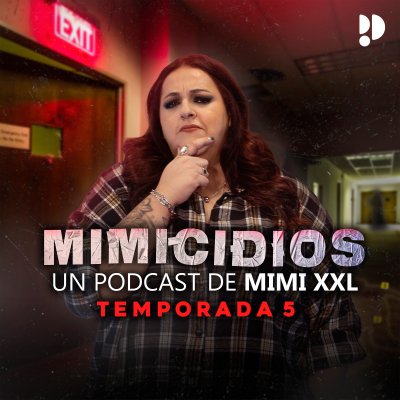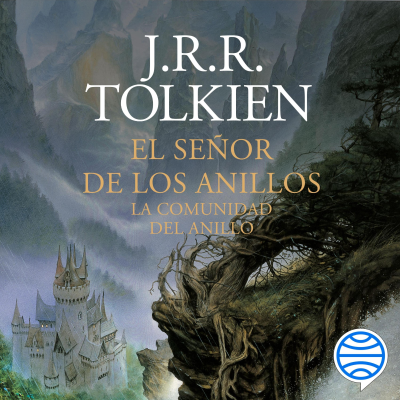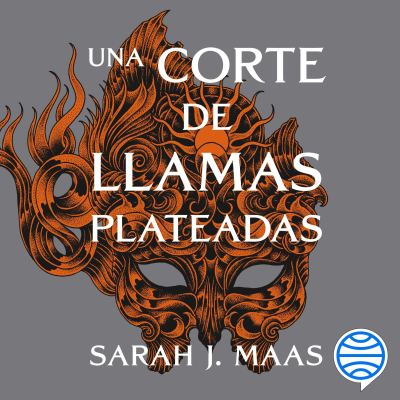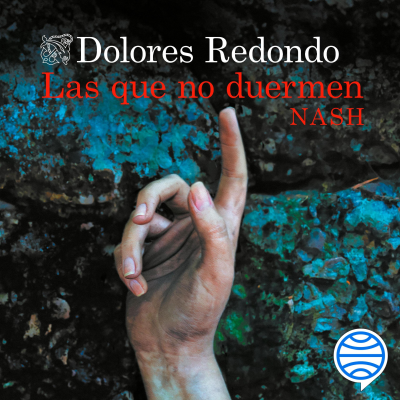
Medical Cases Podcast
Podcast de Jordan Kapper
Medical Cases Podcast is a medical variety show whose target audience includes Internal Medicine and Emergency Medicine residents, medical students and foreign medical graduates. Podcasts will be 1 of 4 types: knowledge pearls (KP), clinical pearls (CP), board review (BR) and cases.
Disfruta 30 días gratis
4,99 € / mes después de la prueba.Cancela cuando quieras.
Todos los episodios
10 episodiosIn 1998, Andrew Wakefield published his infamous and fraudulent article in the Lancet - a very well known medical journal. In the article, Wakefield concludes that there is a link between the MMR vaccine and autism. The article has since been RETRACTED. Indeed, vaccines do not actually cause autism. With this article, an idea began to spread. In this episode, I discuss the implications of the anti-vax movement and a recent article published in the American Journal of Public Health entitled "Weaponized Health Communication: Twitter Bots and Russian Trolls Amplify the Vaccine Debate". In the article, the authors examine Russian Twitterbots and their activity related to vaccine-related tweets. They divided robo/bot twitter accounts into 3 general categories. Russian Trolls Sophisticated Bots and Content Polluters They found that while the "Content Polluter" bots tended towards anti-vax content, the "Russian Trolls" split their posts down the middle. The "Russian Trolls" posted BOTH pro and anti-vax posts. The key here is that the posts were polarising and divisive. The motives behind the Russian bots are far beyond the scope of this article but the effects are obvious. The pro and anti-vax twitter posts serve to polarize the American public. The simple discussion of both pro and anti-vax ideology give credence to the debate. The article discusses several important points: Exposure to anti-vax content increases vaccine hesitancy. Antivaccine advocates have a significant presence in social media. Vaccine hesitant parents are less likely to trust medical professionals. Mere exposure to the vaccine debate may suggest that there is no scientific consensus, shaking confidence in vaccination. Point 4 is the most concerning. The debate ITSELF becomes a method for spreading disinformation. This seems to stand in the face of the fundamental beliefs of modern science and medicine! As physicians, we believe that we must ALWAYS continue to reflect, debate and analyze all the data in front of us. But what if the simple act of analysis can lead to patients to take actions that might lead to their death? The problem isn't that physicians and scientists are always questioning the data. The problem comes when untrained individuals attempt to "do their research" on their own. You don't see me "doing my research" on whether or not Tesla should use lithium cobalt oxide or NCA batteries in their new cars. I wouldn't know how to frame the question. I might be able to figure out the basic differences between the two batteries but I don't have the ability to understand how the differences between the batteries fit into the entire car manufacturing industry as a whole. Much less how it might affect safety, pricing or Tesla's business model and future. The goal of this podcast episode is not to offer a complete solution to the anti-vax problem. Instead, I want to reframe how we think about the issue. You cannot fight the anti-vax movement with facts alone. Confirmation bias is strong and often facts don't change minds. The anti-vax movement is a public health problem and should be addressed with the same rigor that we address any other public health issue. While the clinicians gut reaction is to spout out facts and data regarding vaccine safety, this may not be the best way to approach the problem. I do not attempt to propose a solution here. I suspect the solution will be complex and multi-disciplinary. Instead, I want to encourage the clinician to FULLY empathize with the friend, patient or family member with anti-vax ideology. Such people are not trained with the same scientific rigor as scientists and doctors. They often lack the critical thinking ability to properly analyze the data they are presented with. Finally, even if they have these abilities, they don't have the fundamental medical knowledge required to interpret the data. This is not to belittle or insult, this is simply the truth. As I mention in the podcast: "I don't claim to understand which type of rocket fuel is the best for a Mars mission." I wouldn't be insulted if you said that I lack the overall understanding of rocket science to fully comprehend why one fuel might be better than another. Nor do I know where to find reliable sources to acquire this data. Is there a PubMed for rocket science? Probably, but I don't know what it is. I want to be crystal clear here - this is not to say that ALL scientific discourse is bad. Quite the opposite. We must continue to research, gather data and gain knowledge. However, you must caution the "amateur internet investigator" that they may not have the basic training to understand what they are reading. We must consider that a simple rebuttal of facts is NOT always good enough to change someone's mind. Finally, as clinicians, we must be aware of the propagation of these ideas and address them with rigor and method - not off hand dismissal. I hope you enjoy this episode - MCP is back! I am now working full time with my startup Carenade Health but will start publishing again. Weaponized Health Communication: Twitter Bots and Russian Trolls Amplify the Vaccine Debate So what do you think? Do you have a solution to the Anti-vax movement?
Towards the middle of my third year in Residency, I had the idea to make this episode. I wanted to get a bunch of tips and tricks from all my attending's and co-residents. What ended up happening was a little different than I planned. Unintentionally I switched the question I was asking from "what is a tip or trick you have?" to "what is your one bit of advice?". What resulted is a mix of advice, tips and life lessons from some of my best friends and colleagues. Also, pardon the brief profanities, but hey, its the ER. Enjoy!
I am starting a series of interviews with physicians who have led interesting careers and have great stories to tell. The first of many future interviews to come. There is more to medicine than just working in the hospital - tactical medicine, wilderness medicine, entrepreneurs, founders, international medicine and doctors involved in politics and film. Through this series of interviews I will explore all the various paths that are available to physicians - clinical, non-clinical and international. If you have anyone who wants to be on the show or who you want to hear just email me; medicalcasespodcast@gmail.com! In this episode I interview Dr. Jeremy Tucker an emergency medicine physician, entrepreneur, co-founder and technology enthusiast with interests in artificial intelligence and drones. Dr. Tucker is the co-founder of a company Medssenger and Board Member for Fruit Street, a HIPPA-Compliant Telehealth Software for Lifestyle and Obesity Medicine. Special Thanks to Producer Syndrome for the intro music! "https://www.youtube.com/user/TheHipHopFix" Feel free to check out my startup company. www.carenade.com
A special short episode just in time for Christmas. Here we review an article published in The BMJ entitled "Dispelling the nice or naughty myth: retrospective observational study of Santa Claus." This article, while funny, was also touching. As healthcare providers we are constantly surrounded by death, negativity and people at their worst. We sometimes focus on the medicine and forget the human aspect. Even worse, we are sometimes 'forced' into customer service roles, relegating ourselves to be servants of our patients. However, we must keep in mind that while it can be tough in the hospital, we are still taking care of mothers, brothers and children that are beloved by their families. So while you are working your long night shift on Christmas - or while you are away from your family taking care of someone else's, try to spread some Christmas joy and cheer, in the hospital. Best holiday wishes, From the MCP Sources: Park, J. J., Coumbe, B. G., Park, E. H., Tse, G., Subramanian, S. V., & Chen, J. T. (2016). Dispelling the nice or naughty myth: retrospective observational study of Santa Claus. Bmj, I6355. doi:10.1136/bmj.i6355
Guide to the in-hospital fanny pack: The decision to have a fanny pack was a natural progression. It started in 4th year medical school when a resident gave me a bougie and told me "son, you should keep this in your pocket for your entire rotation". From that moment I felt something inside of me change, I felt more prepared. I wasn't a pro at intubation but I knew I had one of the three things any ER doctor needs to be ready for any situation: Knowledge Equipment The Ability to act Then I witnessed an intubation where the waveform capnography would not calibrate properly resulting in an unnecessary extubation and re-intubation. After that, I started carrying a colormetric CO2 detector in my pocket. I had a bougie, scalpel, end tidal and EMRA pocket guides - along with my badge and stethoscope. I was starting to get weighed down. Finally, on a trip to Mexico, I adopted the use of a portable pulse oximeter as all the residents there carried their own due to the lack of available monitors on every bed. The pulse ox was the final straw. I bought a fanny pack. So what's the final list? Everest fanny pack. 10 Blade Scalpel + Bougie = Cric Kit 12g Angiocath for Needle Decompression 18g Spinal Needle for Pericardiocentesis Tape Measure Portable Pulse Ox EMRA Antibiotic Guide' PALS Pocket Card MCP Rapid Response Checklist (IAD Checklist) Manometer for Central Line Placement Confirmation Lollipops Sharpie Badge and Stethoscope (they hang on the belt as decorations!) My Fanny: Hospitalist's Fanny: Critical Care PA Fellow's Fanny: Link to fanny pack:https://www.amazon.com/Everest-Signature-Waist-Pack-Standard/dp/B000A13NJO/ref=sr_1_1?ie=UTF8&qid=1481136819&sr=8-1&keywords=everest+fanny+pack Link to Pulse Ox: https://www.amazon.com/Santamedical-Generation-SM-165-Fingertip-Saturation/dp/B00R59OTOC/ref=sr_1_3_a_it?ie=UTF8&qid=1481136846&sr=8-3&keywords=pulse+oximeter
Disfruta 30 días gratis
4,99 € / mes después de la prueba.Cancela cuando quieras.
Podcasts exclusivos
Sin anuncios
Podcast gratuitos
Audiolibros
20 horas / mes



















